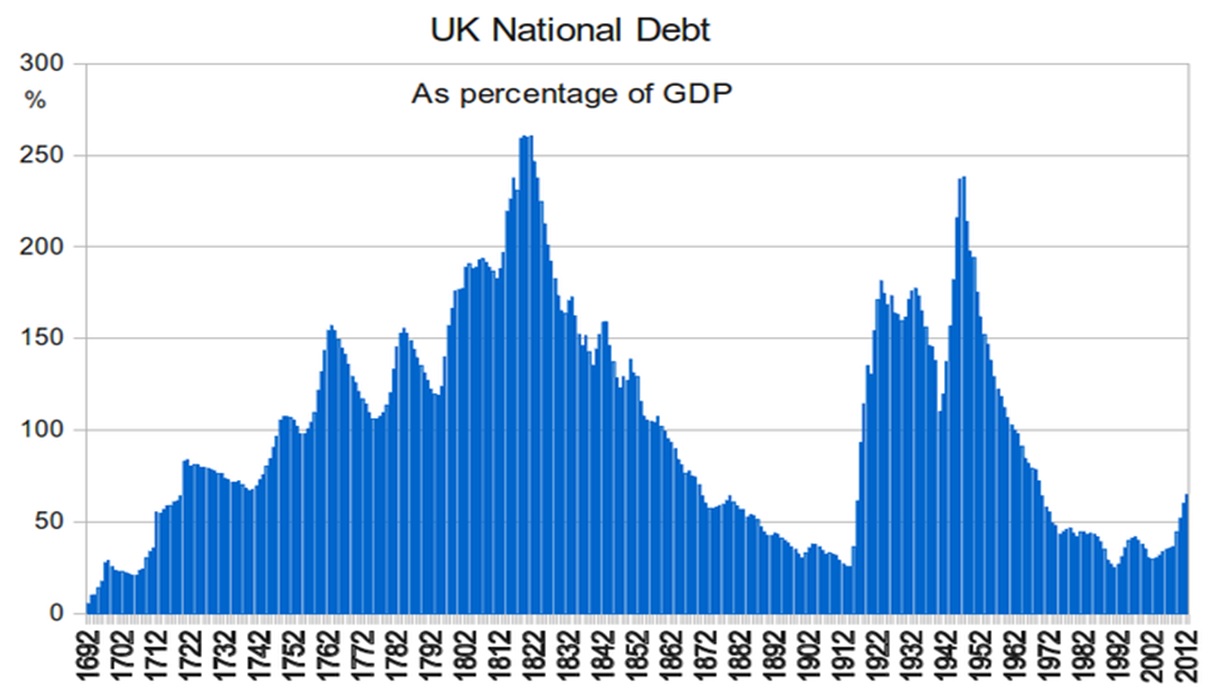Basic income could prevent the coronavirus pandemic causing an economic collapse

Tegid Roberts
If ever there was a time to trial basic income in Wales and the UK, this is it.
Covid 19 [aka SARS – Cov 2] similar to SARS is very potent, easily transmitted and as the south-east Asian countries have shown requires dramatic intervention to reduce infection levels.
Currently, UK policy for the population is to self-isolate as much as possible. We must reduce our social contact which means fewer cafe, restaurant, theatre and cinema visits and a considerable number of people will have to work from home.
If social distancing becomes government policy and all schools, universities and many workplaces close after a period of time citizens will run out of money. The average financial buffer the UK population has is less than two weeks’ worth of money per household.
Take for example the 3.3m people in the construction industry, 40% of them self-employed, who are all reliant on cash. If the government forces construction sites to close, businesses will go into administration within weeks and shed thousands and thousands of jobs.
Wales, where 99.9% of companies are small or medium-sized enterprises, is in particular danger. Many will be unable to continue to pay wages if the worst happens.
So what to do?
Well, a basic income of £500 a month for one year for 5 million people would be £30B which is 1.5% of UK GDP. A good deal of it would be spent and recycled back into the economy and the taxes recouped via VAT, national insurance and income taxes via the products and services it’s spent on. The majority of people will pay priority bills and food shopping.
But isn’t £30B too expensive for an economy in such poor shape?
Well, compared to the bank rescue package totalling some £500 billion announced by the British government on 8 October 2008, as a response to the global financial crisis. Few questioned that initiative and it certainly stabilised the liquidity of the financial markets.
So in comparison to £500bn, £30bn to help five million of the population looks affordable.
Borrowing
But what if we wanted to apply a basic income to the entire population of working age?
The UK working-age population is 42 million. A basic income for all at £500 a month for a year would be £252 Billion or about 13% of UK GDP.
Again, a lot of that goes straight back into the economy and a proportion goes back into the public purse. At that UK government debt rises to about 92% of GDP, which is still a lot lower than the historical peaks in the 1810s and 1918, 1945. See the graph below.

So what do the figures look like on a Welsh basis? Wales has 1.9 million people of working age so applying that same £500 per month would cost £950 Million per month.
Currently, the Welsh government does not have the borrowing powers to apply such a large initiative and would have to rely on the UK government to finance it. It is possible that local authorities in Wales can borrow money but to what level and for how long is debatable.
Implementation
Currently, in Europe, Ireland appears to be the only country that is taking fast action on supporting workers in the economy. They have already announced that they will pay £185 per week for six weeks to every employed, self-employed or unemployed person of working age in Ireland. Implementation is already in place and ready to go.
How would we implement this in the UK and get the money into the hands of those that need it?
To implement such a scheme in the UK would require the government to verify each person’s national insurance number and allocate a bank account to pay the amount into.
If a bank account isn’t available then cash can be paid directly via post office mechanism.
Most families in the UK already receive a child benefit amount via direct debit each month so the government could increase the child benefit paid to include a basic income for that cohort of people immediately and pay weekly.
So to summarise: a basic income scheme will be necessary as work dries up and companies can no longer afford to pay their staff. Government at the state level have the resources and precedent for such a large fiscal intervention as it has had to do when we were at war with the rest of Europe three times.
Increasing debt to GDP by 13% for a relatively short time is fiscally peanuts in comparison to the total collapse of our real-world economy because of a global pandemic that requires immediate and very rapid action.
And with modern banking technology, it can be implemented rapidly.
Support our Nation today
For the price of a cup of coffee a month you can help us create an independent, not-for-profit, national news service for the people of Wales, by the people of Wales.







Very helpful, cogent case presented. Lets hope HMG are listening!
Yes. Far better than supporting airlines so that they can go back to polluting the atmosphere as soon as Covid19 subsides.
Those same airlines whose chiefs are probably still drawing eye watering salaries for doing not a lot other than passing the grief ( not sharing it) down to their teams of staff. There is something quite revolting about business “leaders” howling for aid when they’ve been shafting the tax regime throughout all their good years. Granted something has to be done but the current business models favoured by these multinationals is now proved to be not fit for purpose so more state ownership especially in areas of key services is the way to go. Right now re-nationalisation might be feasible… Read more »
Yep. As most know, Norway has a civil servant running their huge SWF, not a silk suit.
Free enterprise is great for the production of useful goods, and I believe supporting this is v. important. But the land, power and water etc, should belong to the Welsh people. The sooner we get things like the turbine scam buried, the better?
Not the same scale as the airlines example but this is a thread that was started today by someone on the Swansea City non-football forum. *************************************************************************** So my missus works for a charity where kids come to visit and stay and learn about the countryside they now have zero bookings until September. They have all been asked to cut down their hours understandably which they all have. My missus has gone down to 4 days and then will go down to 3…etc some have been asked to just come in 1 day a week so everyone is really going for… Read more »
I think you’ve made an excellent case for a basic income, surely this is something that’s time has come? Disregarding the current crisis, anyone who has even only been keeping a half open eye on the economy will know that retail is currently in crisis and shedding jobs like there is no tomorrow with big chains like Dixons Carphone announcing the closure of all their shops with the loss of nearly 3000 jobs. And there are other chains in a similar predicament. Amazon have already opened their first unstaffed supermarket in the UK and it’s only a matter of time… Read more »
You are right. Some radical change in direction of travel is needed. We are still in the age of the smart arse lawyer creating new kinds of “innovative” contracts for employers to deploy enabling them to salami slice further any residual security of contract that a rank and file employee might enjoy. This has to be overturned. This is not some outrageous fantasy of a ideologically obsessed ( pseudo) socialist but the conclusions drawn by a guy who spent most of his working life trying to make teams work effectively. Anyone who thinks that having people “on the hook” waiting… Read more »
I like the thinking but £500 a month(?) isn’t going to cover rent, food, fuel costs for many people I know. And these people don’t have back up money in spite of being in work or self employed – not because of their own ineptitude but because wages are low for the employed or margins are low for the self-employed so can’t build a reserve.
The general thinking behind UBI schemes is that it frees people up to take a job that doesn’t pay a lot. Currently, if you’re offered a badly paid job you’d say I can’t take it because my Universal Credit would be stopped.
The UBI would be that guaranteed safety net which you can top up with work.
This is one of the most interesting articles on the subject of ameliorating the economic hardship of the pandemic I’ve seen. Mainstream economists are starting to advocate ‘helicopter money’ as being the only way to help poorer people where QE which just inflated rich companies asset prices so obviously failed.
QE may have been intended on well meaning grounds but it was evident very quickly that all it did was revive the values of large corporates whose gratitude was seriously underwhelming as they pursued their complex tax mitigation/avoidance/evasion strategies yet more aggressively. That Osborne and Cameron, followed by others, failed to claw much back is testimony that this was a grand wealth grab from the public purse into private coffers.
A Citizen’s Income has been the policy of Gwlad Gwlad from the very beginning: here is an article about it written in November 2018, but it’s still the cornerstone of our manifesto: https://gwlad.org/en/2018/11/29/english-a-citizens-income-for-wales/ As for putting a CI into immediate effect as an emergency measure – what Milton Friedman called “helicopter money” – there’s a lot to be said in its favour but it’s hard to see how the Welsh government could do this in isolation and it would be difficult even for the UK government. At the very least you’d need control over your own currency so you could… Read more »
A £500pcm UBI is woefully short of what is needed for many effected by this crisis. Aid needs to targeted and immediate. “Helicopter money” is an interesting idea for a one-off post-pandemic economic stimulus, but now? If businesses are forced to close to enforce social distancing or just go bust in the economic downturn then putting any amount of cash in consumers’ hands won’t help those businesses or their workers.
A universal basic income would certainly help by giving a guarantee of a modest income in these times, irrespective of current employment status or other income. It has been a manifesto policy of Gwlad Gwlad from the beginning, but we realise it is not an automatic economic panacea, and our discussions on the issue have been useful. In a time of stability are some drawbacks and possible problems with eligibility and possible exploitation. In a time of crisis they would be very difficult to manage. Yes, we should already have rolled it out and dealt with the problems. In this… Read more »
There’s a lot of ‘elastoplast’ in existence in the form of rebates on water, electricity, comms, council tax, for those with low incomes.
These are essential for people on universal credit and legacy benefits.
Historically, prior to privatisation of the utilities, there were ‘social tariffs’
There’s a lot to figure out here.